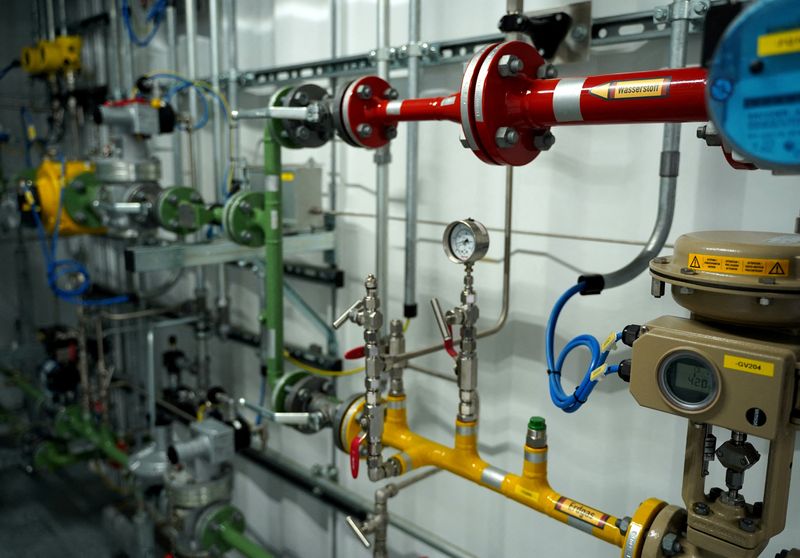FRANKFURT (Reuters) - German heating system suppliers said they can roll out electric heat pumps to households on a large scale to replace oil and gas boilers and protect the climate, but lawmakers must be flexible on options to cut the sector's carbon footprint.
"The industry is committed to supporting government goals to install 500,000 new pumps each year from 2024," Markus Staudt, managing director of the federation of German Heating Industry (BDH), said on Thursday. He added producers were revving up capacities.
"But we must give some 11 million old and inefficient heating systems and those installed in recent years a chance to continue running partly on green gases," he said at a press conference ahead of the trade fair ISH that runs next week.
The Berlin government is due to launch policies to cut CO2 in buildings, catching up with a sector that consumes over a quarter of all energy in Europe's biggest economy and emits 15% of its CO2.
The Economy and Housing ministries are proposing new heating systems be fit to use at least 65% CO2-free energy as an input source from 2024.
But banning oil and gas too soon would be technically and financially unrealistic, the industry believes.
"We can't bet on an all-electric solution, which would require an urgent and crazy-sum power network expansion," said Helmut Bramann, managing director of another sector lobby, ZVSHK.
A ban would also close the door to hybrid systems that could gradually introduce more home-produced solar thermal and photovoltaic energy, and fill existing gas pipelines with renewable-derived gases, he added.
Among 980,000 new heating units put in last year, 236,000 were heat pumps, that extract heat from the air or ground and whose sales were up 53%, BDH data showed.

But some 598,500 units installed in 2022 still rely on gas, and the remainder on heating oil and biomass, such as wood pellets from sawmill industry waste.
Economy Minister Robert Habeck at a separate appearance promised financial support for modernising homes.